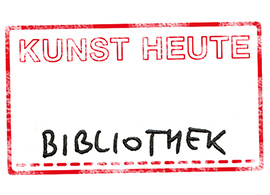Upload Variables
< Security Variables | Variables | Blocklist >
See also: Uploads, Uploads admin.
$EnableUpload- The upload.php script is automatically included from stdconfig.php if the
$EnableUploadvariable is true in config.php. Note that one may still need to set an upload password before users can upload (see UploadsAdmin). $UploadBlacklist- This array contains forbidden strings for an uploaded file (case insensitive). Some installations with the Apache server will try to execute a file which name contains ".php", ".pl" or ".cgi" even if it is not the last part of the filename. For example, a file named "test.php.txt" may be executed. To disallow such files to be uploaded, add to config.php such a line:
-
$UploadBlacklist = array('.php', '.pl', '.cgi'); # disallow common script files $UploadPermAdd- This variable sets additional unix permissions applied to newly uploaded files, and should be 0 (recommended as of 2013). If uploaded files cannot be downloaded and displayed on the website, for example with the error 403 Forbidden, set this value to 0444 (core setting, default since 2004).
-
$UploadPermAdd = 0; # recommended $UploadPermSet- This variable sets unix permissions unconditionally applied to newly uploaded files, for example
0604. Danger! Do not use this variable unless you know what you're doing! If you make a mistake, uploaded files may be impossible to edit or delete via the FTP/SSH account (in that case, Cookbook:Attachtable may be used) or to be downloaded and displayed on the website. Note that file permissions may differ on different systems - if you copy or move your PmWiki installation, you may have to change it. $UploadDir- The directory where uploads are to be stored. Defaults to uploads/ in the pmwiki directory, but can be set to any location on the server. This directory must be writable by the webserver process if uploading is to occur.
$UploadUrlFmt- The url of the directory given by
$UploadDir. By default,$UploadUrlFmtis derived from$PubDirUrland$UploadDir.
$IMapLinkFmt['Attach:']- The format of the upload link displayed when an attachment exists. Can be changed with such a line in config.php:
$IMapLinkFmt['Attach:'] = "<a class='attachlink' href='\$LinkUrl'>\$LinkText</a>";
$LinkUploadCreateFmt- The format of the upload link displayed when an attachment not present. Can be changed with such a line in config.php:
$LinkUploadCreateFmt = "<a class='createlinktext' href='\$LinkUpload'>\$LinkText</a> <a class='createlink' href='\$LinkUpload'> Δ</a>";
$UploadPrefixFmt- Sets the prefix for uploaded files to allow attachments to be organized other than by groups. Defaults to
'/$Group'(uploads are organized per-group), but can be set to other values for sitewide or per-page attachments.
$UploadPrefixFmt= '/$Group/$Name'; # per-page attachments$UploadPrefixFmt= ''; # sitewide attachments
- It is recommended to have the
$UploadPrefixFmtvariable defined in config.php, the same for all pages in the wiki, and not in group/page local configuration files. Otherwise you will be unable to link to attachments in other wikigroups. $EnableDirectDownload- When set to 1 (the default), links to attachments bypass PmWiki and come directly from the webserver. Setting
$EnableDirectDownload=0; causes requests for attachments to be obtained via?action=download. This allows PmWiki to protect attachments using a page's read permissions, but also increases the load on the server. Don't forget to protect your directory /uploads/ with a .htaccess file (Order Deny,Allow / Deny from all). $EnableUploadGroupAuth- Set
$EnableUploadGroupAuth= 1;$EnableDirectDownload= 0; $EnableUploadVersions- When set to 1 (default is 0), uploading a file to a location where a file of the same name already exists causes the old version to be renamed to
file.ext,timestamp(instead of being overwritten).timestampis a Unix-style timestamp. $EnableUploadOverwrite- When set to 1 (the default), determines if overwriting previously uploaded files is allowed.
$UploadNameChars- The set of characters allowed in upload names. Defaults to
"-\w. ", which means alphanumerics, hyphens, underscores, dots, and spaces can be used in upload names, and everything else will be stripped. $UploadNameChars= "-\\w. !"; # allow dash, letters, digits, dots, spaces and exclamations$UploadNameChars= "-\\w. \\x80-\\xff"; # allow Unicode- Note: Not all characters can be used in file names, because of various limitations in protocols or operating systems, file systems and server software, or conflict with PmWiki markup:
+?:@#%!=/have special meanings in URL addresses,|\^`[]?:@#%/may be impossible to save on some systems,<>"|\^`(){}[]#%may conflict with PmWiki markups,
- so it is strongly recommended to only enable those if you know what you're doing.
$MakeUploadNamePatterns- An array of regular expression replacements that is used to normalize the filename of an attached file. First, everything but
$UploadNameCharswill be stripped, then the file extension will be converted to lowercase. Administrators can override these replacements with a custom definition (the full array needs to be defined). $UploadDirQuota- Overall size limit for all uploads.
$UploadDirQuota = 100*1024; # limit uploads to 100KiB $UploadDirQuota = 1000*1024; # limit uploads to 1000KiB $UploadDirQuota = 1024*1024; # limit uploads to 1MiB $UploadDirQuota = 25*1024*1024; # limit uploads to 25MiB $UploadDirQuota = 2*1024*1024*1024; # limit uploads to 2GiB
$UploadPrefixQuota- Overall size limit for one directory containing uploads. This directory is usually
GroupName?(one for every WikiGroup), oruploads/PageName?(one for every page), depending on the variable$UploadPrefixFmt. $UploadMaxSize- Maximum size for uploading files, 50000 octets (bytes) by default.
$UploadExtSize- Maximum size per extension, overriding the default in
$UploadMaxSize.
$UploadExtSize['zip'] = 2*1024*1024; # allow up to 2MiB for zip files
< Security Variables | Variables | Blocklist >
This page may have a more recent version on pmwiki.org: PmWiki:UploadVariables, and a talk page: PmWiki:UploadVariables-Talk.
